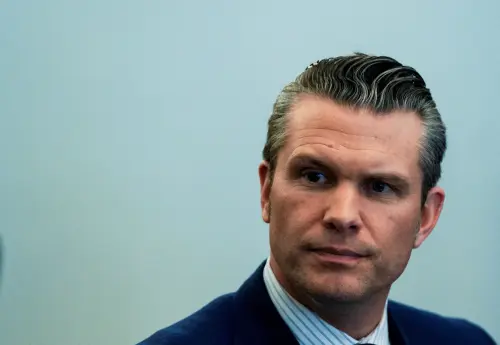U.S. Defense Secretary Pete Hegseth's recent international foray has stirred controversy among key Republicans and strained relations with European allies due to his contentious remarks.
While his strong statements found favor with President Donald Trump, they clashed with the traditional diplomatic stance expected on his European visit.
During a speech at NATO headquarters in Brussels, Hegseth emphasized the Trump administration's position on Ukraine, dismissing the idea of expanding NATO membership to Kyiv.
Trump supported Hegseth's stance, stating, "I think probably that's true," regarding Ukraine's NATO membership prospects.
However, not all Republicans were pleased with Hegseth's remarks. Senator Roger Wicker criticized the speech, comparing it to "the kind of thing Tucker Carlson could have written."
Wicker had actively supported Hegseth's appointment despite significant opposition during the confirmation process.
Republican congressman Mike Turner argued that crucial matters like Ukraine's NATO membership should remain open for discussion.
Hegseth continued to align his views with Trump's America First policies, highlighting European reliance on expensive U.S. military support and unfair trade practices.
Hegseth made it clear that Trump would have the final say in Ukraine negotiations and stressed the importance of moral clarity regarding the conflict's origins.
Trump remained diplomatic amidst criticisms, emphasizing his positive relationships with stakeholders and downplaying any discord.
European officials expressed dissatisfaction with Hegseth's approach, with Germany's Defense Minister Boris Pistorius labeling it as "clumsy" and European foreign policy chief Kaja Kallas condemning it as "appeasement" with historic failures.
Ultimately, Hegseth's visit underscored the ongoing tensions and diverging perspectives between the U.S. and its European allies on critical issues. The varying opinions highlighted the complexities of transatlantic relations under the Trump administration.
